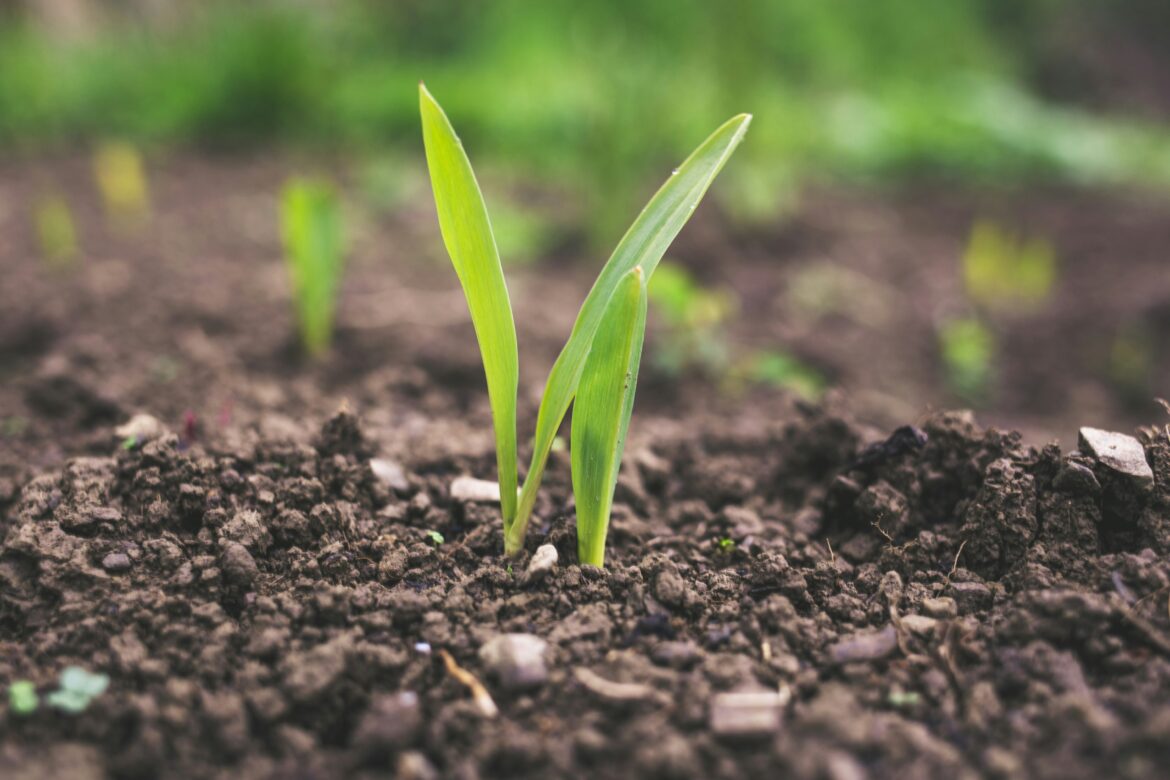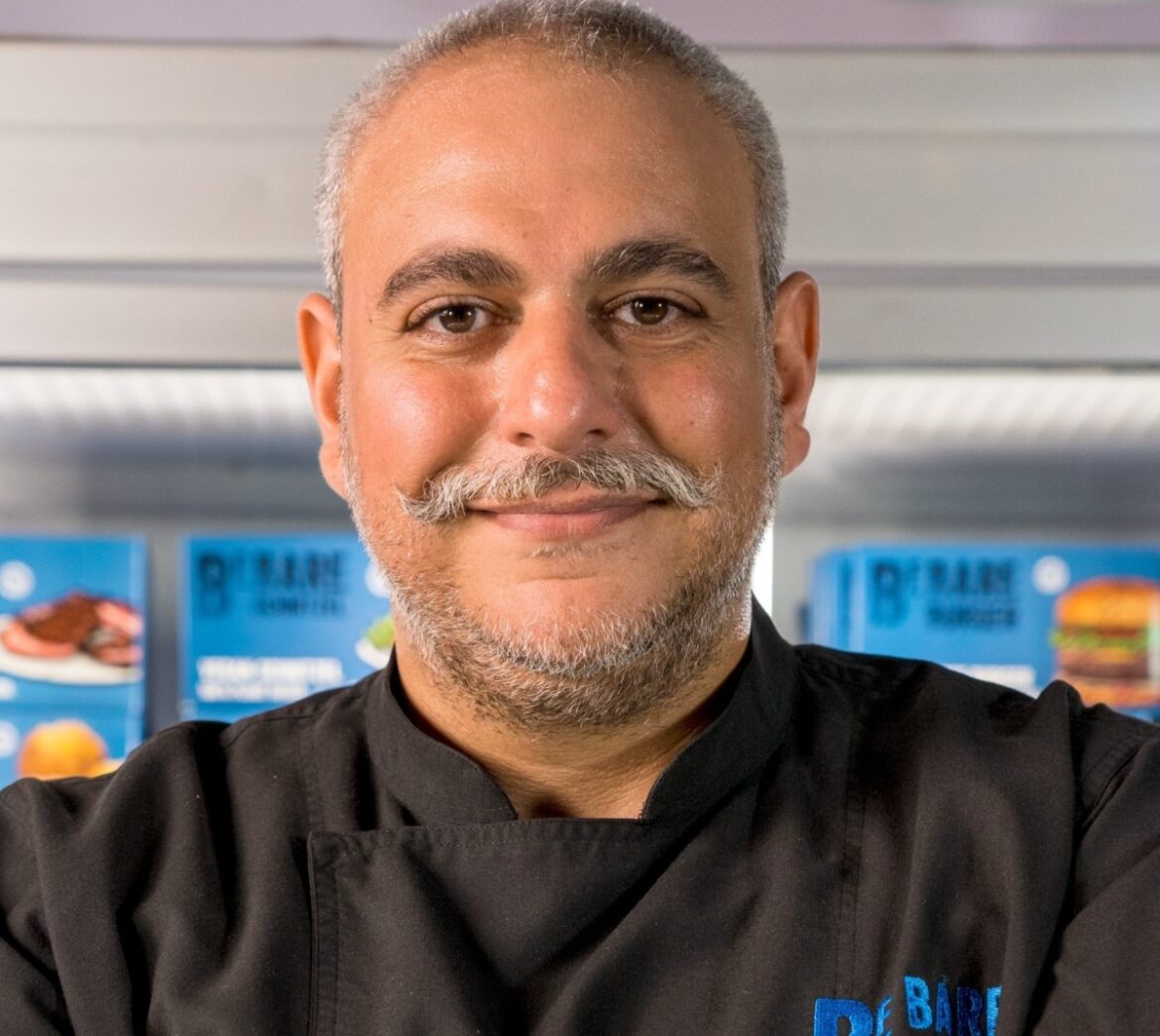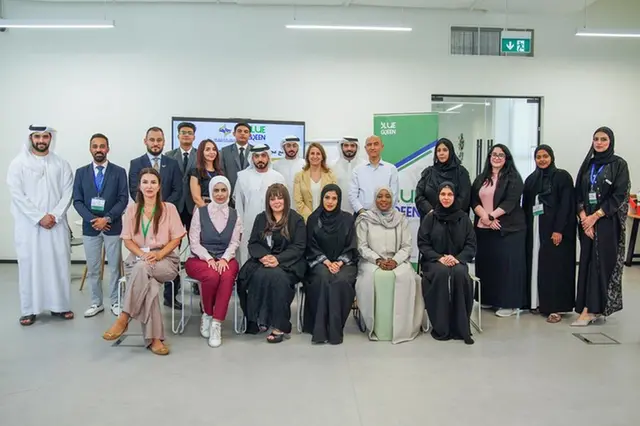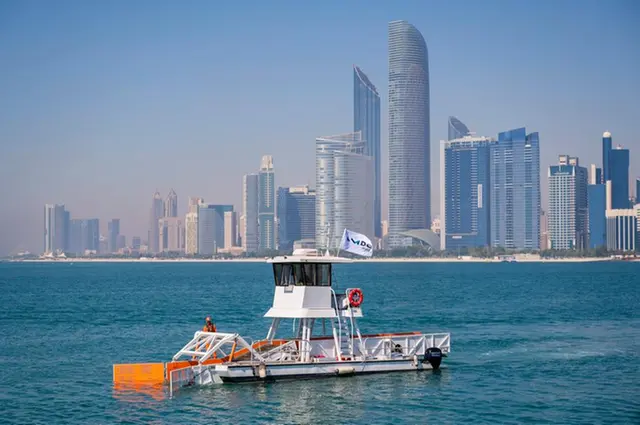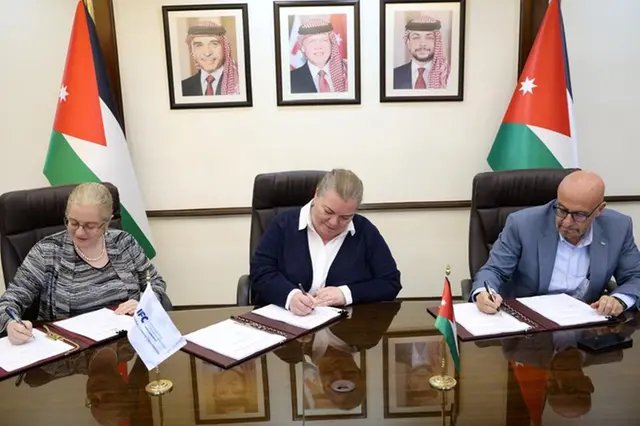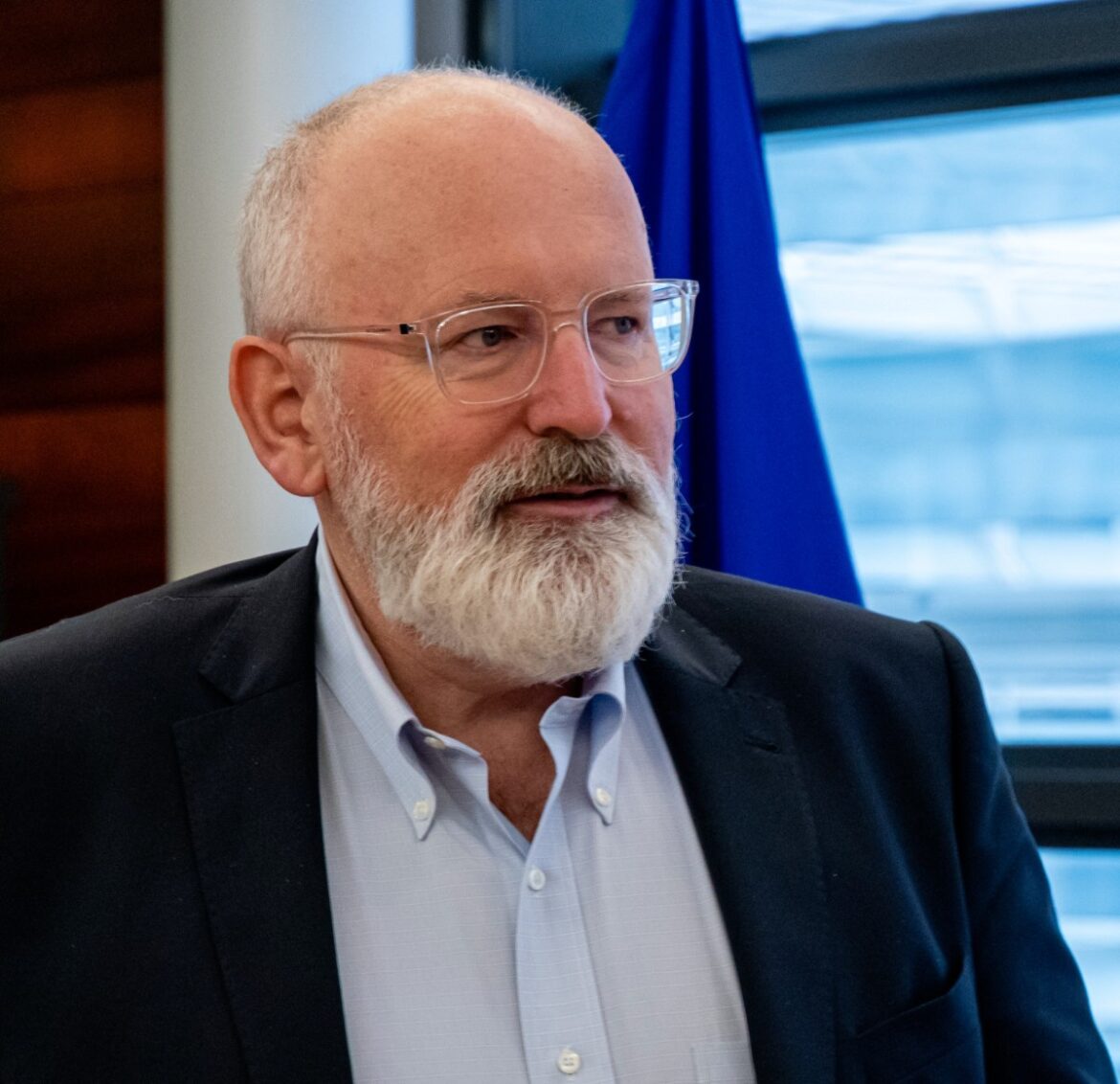Monthly Archives
June 2024
The Technical Cooperation Collaborative (TCC) was formally launched at an event in Bonn this week to support the implementation of the COP28 UAE Declaration on Sustainable Agriculture, Resilient Food Systems and Climate Action.
The TCC was initially announced during COP28 and comprises a group of partners collaborating to offer countries “quality technical cooperation” and to help deliver on the objectives of the Declaration.
The Declaration emphasises the need for common action to address the relationship between food systems and climate change and mandates an initial review of collective progress at COP29.
“The Declaration has now been endorsed by 159 countries, accounting for over 80 per cent of agricultural-based GDP, 70 per cent of the world’s farmers, and 80 per cent of emissions from agriculture,” commented Adnan Amin, Chief Executive Officer of COP28.
Amin said that these countries “all agree” that there is no path to achieving the goals of the Paris Climate Agreement without addressing the interactions between food systems, agriculture, and climate.
The launch of the TCC was unveiled by the COP28 Presidency at an event titled ‘Mobilizing for Climate Action and 2025 NDCs through Sustainable Agriculture and Resilient Food Systems’.
It was shared that TCC partners will now begin responding to country requests, including by developing “deeper and more transparent collaboration” among each other to ensure that national priorities are covered, gaps and opportunities are identified, and there is a harmonised scaling up of technical cooperation.
The founding members of the TCC include COP28 UAE, Italy, the United States, the United Kingdom, the World Bank, the Food and Agriculture Organization of the United Nations (FAO), the International Fund for Agricultural Development (IFAD), AGRA, CGIAR, GAIN, the Global Green Growth Institute (GGGI), and the Inter-American Institute for Cooperation on Agriculture (IICA).
“We’re trying to change mindsets”: Tolga Soytekin on Accelerating the Plant-Based Food Revolution
written by Madaline Dunn
While half the world’s habitable land is used for agriculture, livestock accounts for around 80 per cent of this and carries a hefty environmental price tag. Although estimates vary, animal agriculture is said to be responsible for as much as 20 per cent of global greenhouse gas emissions while also driving deforestation, water pollution, land degradation and biodiversity loss. Yet, research indicates that it makes up around just 18 per cent of calories and 37 per cent of protein.
Ultimately, the way in which the world produces food is inefficient, unsustainable and a major contributor to climate change – and it needs to change. In fact, a recent report from Harvard University outlined that globally, diets must become more plant-based to limit the worst effects of climate change. Indeed, one 2023 study found that plant-based diets can result in 75 per cent less climate-heating emissions, as well as significantly less water pollution and land use than meat-heavy diets.
However, reducing meat consumption was omitted in the FAO’s recent 1.5 food systems roadmap, published at COP28.
Despite this oversight, and while food systems transformation has yet to work its way up to the top of the policy agenda, the number of people ditching meat and dairy is on the rise. Some research even suggests that nearly half of consumers worldwide believe plant-based food will largely replace meat by 2032.
Bare Foods Global, a plant-based food business in Dubai, is one of the companies leading the charge regionally and advocating for a plant-based revolution.
ESG Mena met with founder and chef Tolga Soytekin to hear more about the company’s mission, Bare Foods Global’s launch of the Meatless Mondays initiative in the UAE, and the regional drivers behind the adoption of plant-based diets.
“Fresh Ingredients and Clean Food”
Soytekin grew up around fresh ingredients and home cooking, inheriting his passion for food from his grandmother in Cyprus, with whom he cooked as a child. It was this childhood experience that inspired the approach and style he has nurtured in his own kitchens over the years.
“I found I had this wealth of knowledge of how to make food like it’s been made for hundreds of years in the Mediterranean. So, it was important to me in the restaurant to use fresh ingredients and clean food. My ethos is: ‘I would never feed you food that I would never feed my own child,'” said Soytekin.

Moreover, Soytekin explained that while the company’s ingredients might have changed as operations have scaled, he never uses synthetic flavours or preservatives. And the data shows that this ‘clean label’ approach to plant-based is increasingly important to consumers.
Indeed, in recent years, some faux meat and dairy brands have been branded “ultra-processed,” unhealthy and artificial, including by big meat and dairy – and this is feeding into consumer perception.
In fact, in Europe, research from EIT Food suggested that over half of consumers now reportedly avoid plant-based meat due to viewing it as “ultra-processed food” (UPF). Meanwhile, research from Mintel previously found that consumers would eat more plant-based meat if it was less processed. And this has resulted in some big plant-based meat brands shifting gears and simplifying ingredient lists.
For context, in places like the UK and the US, UPF makes up over 50 per cent of overall calorie intake, while in the Middle East, the average is around just below 40 per cent. It is also worth noting, as outlined by the Good Food Institute (GFI), that UPF, while a term that is “widely used,” is not well understood “either by experts or the general public.”
The GFI also highlighted that, as with conventional meat products, there is a high degree of variation in the level of processing different plant-based meat options undergo.
Moreover, one recent study published in The Lancet found that the type of UPF is important when considering health implications. For example, although processed animal-based products were associated with negative health outcomes, processed plant-based products were “not associated with risk of multimorbidity.”
But while fear of UPF can dissuade some from pursuing plant-based, for others, plant-based diets’ health benefits are the draw. Indeed, a recent 20-year review found that plant-based diets are “significantly associated” with long-term health benefits and a lower risk of cardiovascular disease and cancer.
Shifting Eating Habits
However, when it comes to consumers’ switching to plant-based, Soytekin noted that motivations vary depending on demographics. Regionally, he said the COVID-19 pandemic was a big eye-opener for many people and encouraged consumers to reassess both the origin of their food and their relationship with it. Soytekin also noted that the documentary The Game Changers had a big impact on the way people think about food.

From the environmental perspective, Soytekin said that, regionally, COP 28 helped to catalyse a shift and noted that for some, the awareness of the lower environmental impact of plant-based food is more likely to change behaviour.
While there is often a disconnect between how animals are farmed and the meat or dairy products that are served up on a plate, Soytekin said the environmental impacts of animal agriculture are far more visible.
“Look at the temperature, the rains, the flash floods, the wildfires, all [of] this as an environmental impact of global warming,” said Soytekin, noting that framing plant-based diets from this perspective is more likely to elicit action. [People] are always concerned about what they’re leaving behind for their kids and their grandkids.”
Youth Key in Driving Plant-Based Food Adoption

Indeed, the youth has a key role to play in driving forward action, which is why Bare Foods Global recently launched Meatless Mondays across 20 schools in the UAE.
Meatless Mondays is an initiative that was founded back in 2003, aimed at increasing plant-based dining options in schools, hospitals, and other institutions. Over the two decades since its launch, it has grown into a global movement and is now present in over forty countries.
“The kids are the ones who are, to a certain degree, dictating what’s being added to the house,” said Soytekin. “If the education of our children can help push the agenda of Meatless Mondays in the home, then it can have a [serious impact].”
Soytekin’s hope is that this will spark a chain reaction.
“If it takes us ten years, it takes us ten years. But the point is that we should start to make a change now.”
However, despite the mounting evidence that plant-based diets are more environmentally friendly, healthier, and less harmful to animals, as well as the growing number of initiatives aimed at sparking change, for those in the industry, it can sometimes feel like an uphill battle.
Navigating Headwinds, Riding Tailwinds
In recent years, the industry has faced a crackdown on plant-based labelling, largely concentrated in Europe and across states in the US, where using terminology such as “steak,” “sausages” and “mozzarella” on plant-based products has been banned.
“It’s a push from the meat industry to try and create barriers and hurdles for the plant-based industry,” said Soytekin.
Indeed, another popular narrative pushed by various parties as of late is that the “vegan bubble has burst.” However, while it is true that plant-based meat sales are down in some regions, 2024 actually saw record levels of participation in Veganuary, an annual event by the non-profit of the same name, which encourages people to go vegan for the month of January.
Further, while consumers might be buying fewer plant-based products, that doesn’t mean that they’re returning to meat.
Indeed, with the global cost of living crisis hitting food prices – including that of meat and dairy – some consumer data indicates that people are switching to cheaper alternative proteins and choosing to cook from scratch.
Soytekin said that here, the most important thing is that people are swapping out meat for alternatives, whether that’s using chickpeas, vegetables or plant-based meat.

“Ultimately, we’re trying to change their mindset,” said Soytekin, noting that while plant-based burgers and meatballs can be the catalyst, there’s “always going to be evolution.”
“Like any industry, in any market, you have dips and ebbs and flows from time to time; that’s normal,” said Soytekin, adding that consumers also want “something new.”
“There are parts of the industry that have so much potential for development,” said Soytekin. “If we want to be able to make an impact, we have to be patient for research to catch up with production.”
However, progress is being made on the research front, both in terms of ingredient development and scaling processes.
The recent Good Food Institute (GFI) industry report, for example, highlighted the development of new animal-free fats and emulsifiers and novel aquatic, leguminous, and upcycled protein sources, alongside advances in plant-protein texturisation scalability.
And innovation is only growing. This year, we’ve seen the emergence of whole cuts of plant-based meat made without binding agents, progress on AI-powered plant-based food, and the launch of fermented plant-based steak, to name a few.
Centring Food at the Heart of Climate Action
But beyond innovation and behavioural nudges delivered through industry initiatives, like Meatless Mondays, Soytekin said that the government also has a big role to play in encouraging dietary changes.
“We need more government involvement in pushing the Meatless Mondays agenda and adoption by a lot more sectors,” said Soytekin, noting that there needs to be a particular emphasis on healthcare and hospitality, the latter of which the team is now focusing their efforts on.
Soytekin said that this should come in the form of both policy and incentives.
“There should be more emphasis put onto those markets by the government for them to adopt more environmentally sustainable ways of providing food.”
Indeed, here, Soytekin highlighted the staggering level of food waste in the UAE, where almost 40 per cent of prepared food goes in the bin.
“I think a coupling of food waste and plant-based food as an alternative should be more on the agenda [for] those industries by the government.”
Looking ahead, while the industry might be facing headwinds amid a challenging economic backdrop, consumer interest is growing, as is consumer climate awareness and action, with a greater understanding of the link between what we eat and how it affects the planet’s health in public discourse.
While food systems transformation didn’t get the attention it deserved at COP28, it was on the menu for the first time, and placing it higher on the agenda is having ripple effects in the region and beyond.
If we are to peak livestock emissions this decade, as the research says we must, food must be at the heart of climate action. Initiatives like the one Soytekin is spearheading in the UAE demonstrate that this can be simple, affordable and delicious.
By Madaline Dunn, Lead Journalist, ESG Mena.
The Ajman Chamber of Commerce and Industry (ACCI) recently hosted the “Ajman Sustainability Program,” aimed at raising awareness about the latest global practices and tools in the field of social responsibility and sustainability.
The project, which ran for four days at the Ajman Youth Center in Al Safiya in collaboration with Blue Green Consultancy and Kensington Academy, saw the participation of business owners and officials from private sector establishments who are members of the Ajman Chamber.
Jamila Kajoor, Director of Member Relations and Support at the Ajman Chamber, explained that the program included a series of training workshops and interactive lectures presented by experts and specialists in the field of sustainability.
The program covered the concept of sustainability and corporate responsibility, addressing the economic, environmental, and social benefits resulting from sustainable practices.
The program also discussed how to develop and implement sustainable strategies that align with the objectives of private sector establishments, with practical examples provided.
In addition, the program addressed the role of innovation in enhancing sustainability and achieving environmental goals, as well as resource management, recycling, and sustainability reporting.
The Ajman Sustainability Program also emphasised the role of training and education in spreading a culture of sustainability among employees and highlighted the necessity of cooperation and partnership between government entities and the private sector to achieve sustainability goals. The importance of strategic partnerships that promote the launch of qualitative initiatives and events was also underlined.
The Ministry of Climate Change and Environment (MOCCAE) has announced the designation of nine globally significant key biodiversity areas (KBA) in the UAE. These areas are of strategic biological importance globally and are home to numerous endangered plants and animals.
Approved by the ‘Key Biodiversity Areas Secretariat,’ the nine newly appointed KBAs include:
- The Arabian Oryx Protected Area in Abu Dhabi;
- The Marawah Marine Area in Abu Dhabi;
- Al Yasat Marine Area in Abu Dhabi;
- Al Marmoom Desert Conservation Reserve in Dubai;
- The Dubai Desert Conservation Reserve;
- Wadi Al-Helo in Sharjah;
- Khor Fakan and Shark Island in Sharjah;
- Wadi Al-Bih in Ras Al Khaimah; and
- Siniyah Island and and Khor Al Beidah in Umm Al Quwain.
It was shared that the key biodiversity areas play a critical role in protecting biodiversity from extinction and maintaining its stability.
Five of these key sites are fully protected, accounting for an average of 98 per cent of the KBA area coverage by Protected Areas in the UAE.
It was outlined that the designation of KBAs raises:
- The mean area that is protected in terrestrial sites important to biodiversity from 51.55 per cent to 98.08 per cent,
- The mean area that is protected in marine sites important to biodiversity from 48.61 per cent to 98.17 per cent, and
- The average proportion of key biodiversity areas covered by protected areas from 37.59 per cent to 98.13 per cent.
The project is the result of a collaboration between the MOCCAE and the International Union for Conservation of Nature, with the designation completed last year, following the global standard for identifying such areas. These sites have now been officially published on the World Database of Key Biodiversity Areas.
Her Excellency Dr. Amna bint Abdullah Al Dahak, Minister of Climate Change and Environment, commented: “The designation of nine globally significant key biodiversity areas in the UAE is the result of the nation’s initiatives during the Year of Sustainability and its commitment to biodiversity conservation and nature protection. The UAE has demonstrated exceptional endeavours in protecting living creatures from extinction, both locally and globally.”
HE Dr. Al Dahak added: “Such conservation projects in the UAE play a crucial role in raising public awareness about the importance of biodiversity and mitigating the adverse impacts of its depletion. These projects are instrumental in informing and shaping policies that align with the UAE’s economic objectives.
“With growing awareness and dedication, the UAE remains at the forefront of biodiversity protection efforts and is actively working to improve and rehabilitate natural habitats for a wide range of species, benefiting both current and future generations.”
NMDC Group and Environment Agency – Abu Dhabi Launch Beach Cleaning Technology
written by Madaline Dunn
NMDC Group, an engineering, procurement, construction, and marine dredging company, has announced its partnership with the Environment Agency – Abu Dhabi (EAD) to launch a beach cleaning initiative to tackle plastic pollution along Abu Dhabi’s coastline.
According to UN estimates, plastic pollution is set to nearly triple by 2040, and already between 8 and 12 million tonnes of it enters the earth’s oceans each year.
Aimed at addressing this plastic problem regionally, the project’s first phase will deploy two specialised beach cleaning machines capable of processing various types of waste.
NMDC Group’s machines are designed to operate in shallow waters, and are capable of reaching depths up to half a meter, featuring a 15-metre-long and 4-metre-wide hydraulic arm.
Her Excellency Dr. Shaikha Salem Al Dhaheri, Secretary General of EAD, said that the project aligns with both EAD’s strategic objectives and national directives.
“It is also part of our citizen science education programme “Sahim,” said Her Excellency Dr. Al Dhaheri.
“We hope it will contribute to creating a healthy, clean, and safe environment for every community member in Abu Dhabi and advance the UAE’s efforts at local, regional, and global levels to promote sustainability practices and principles essential for the preservation of diverse ecosystems around the world.”
Engineer Yasser Zaghloul, Group CEO of NMDC Group, explained that, in the second phase of the initiative, the company plans to expand the deployment of the equipment.
Together, the IFC, a member of the World Bank Group, the Government of Jordan and Miyahuna, a state-owned water utility, have announced the signing of a collaboration agreement to support the company in reducing water loss across its distribution network, increasing water supply and enhancing water sustainability.
Jordan is one of the most water-scarce countries in the world and also has high Non-Revenue Water (NRW) levels. NRW is water that is lost before it reaches the customer. This can happen for a number of reasons, including leaky pipes and theft, and in the country, over 50 per cent of Jordan’s water is lost this way.
It was shared that the IFC will work with the Government of Jordan and Miyahuna to reduce the country’s high NRW, a task that will be realised through the co-development of a project to attract private sector investments in the NRW space.
The parties shared that the project will be tendered competitively to optimise water-management efficiency and reduce water loss substantially across one-third of Amman’s area.
“This new partnership with IFC will help us increase water supply for everyone and improve the efficiency of the network by engaging the private sector – a basic human need,” said Zeina Toukan, Minister of Planning and International Cooperation.
Indeed, according to Hela Cheikhrouhou, IFC Regional Vice President for the Middle East, Central Asia, Türkiye, Afghanistan, and Pakistan, cutting water loss by half could supply water for about half a million people in Jordan.
“IFC aims to work in tandem with the government to engage the private sector as part of the solution for not only saving water but also for increasing Jordan’s overall resilience to climate change,” said Cheikhrouhou.
Water utility Miyahuna supplies potable water to over six million residents of the Greater Amman region and the neighbouring Zarqa, Madaba, and Balqa governorates, where half of Jordan’s population resides.
“The agreement demonstrates our commitment to addressing the long-standing issue of water scarcity that can impact every aspect of life. Reducing water loss will not only help us save water for more people but will also support our revenues to provide better services in the long run,” commented Mohammad Ouran, CEO of Miyahuna.
The National Bank of Kuwait’s (NBK) Digital Communication team recently held an awareness session for employees on the latest forms of electronic fraud, providing guidance on how to avoid falling prey to such scams.
This is part of its continued participation in the “Let’s Be Aware” campaign introduced by the Central Bank of Kuwait, in cooperation with the Kuwait Banking Association (KBA), aimed at promoting financial literacy.
Commenting on this, Abdul-Mohsen Al-Rushaid, AGM, Head of Digital Communications at the National Bank of Kuwait, said that such awareness campaigns help to foster a fraud-resilient environment.
“As a leading financial institution in Kuwait and across the region, NBK frequently organizes various activities that contribute to raising awareness about all topics related to [banking] and help in combating fraud and financial crime,” he added.
According to Al-Rushaid, NBK aims to expand its efforts in spreading banking and financial awareness among all sectors of society by familiarising them with the latest forms of electronic fraud and highlighting how crucial cybersecurity is.
“NBK uses all its digital channels to highlight different fraud types including fictitious investments whether in cash, commodities, virtual currencies or real estate,” he explained.
“Additionally, it always warns customers against all fraud attempts via SMS, e-mail or phone calls by sharing messages on its social media platforms to warn customers against clicking unverified ads like those promising high gains, enticing individuals to register their personal information on fake trading platforms or accounts promising financial aids,” added Al-Rushaid.
Saudi EV brand and original equipment manufacturer (OEM) Ceer has announced that it has joined the United Nations Global Compact.
Joining the corporate sustainability initiative will see the company embed the UN Global Impact’s 10 principles into its strategy, culture, and operations, it shared.
“Ceer is steadfastly committed to igniting the Kingdom’s progress in Environmental, Social and Governance (ESG) best practices in the automotive industry. We underscore this commitment by reinforcing our responsibility, our sustainability, and our transparency, integrating the Compact’s 10 principles into heart of all we do,” commented Jim DeLuca, CEO of Ceer.
The Saudi EV brand is a joint venture between PIF and Foxconn and the Kingdom’s first end-to-end EV brand and OEM. It designs, manufactures, and supplies electric sedans and SUVs, leveraging systems from Foxconn and BMW, to be produced in the Ceer Manufacturing Complex (CMC) currently under construction in King Abdullah Economic City (KAEC) on Saudi Arabia’s Red Sea coast.
The UN Global Compact was launched in 2000 and is the largest corporate sustainability initiative in the world, with more than 20,000 companies based in over 160 countries.
Europe Needs a Green Deal 2.0
written by Madaline Dunn
The European Union’s Green Deal is one of the bloc’s most successful and transformational policy frameworks, offering a clear path toward full sustainability by mid-century. But emerging challenges, such as an increasingly adversarial geopolitical landscape and rapidly escalating climate and biodiversity crises, call for recalibrating the Green Deal to ensure it can achieve its goals.
There are three ways to strengthen the framework. The first is to align the fight against climate change with the effort to make the EU more competitive. Europe’s energy prices, which have skyrocketed to unsustainable levels following Russia’s invasion of Ukraine, are the root cause of the EU’s declining competitiveness. The invasion and subsequent disruption of Russian natural-gas supplies showed that the bloc’s continued dependence on fossil fuels both exacerbates climate change and poses an immediate risk to Europe’s economic future. Notably, EU member states currently pay twice as much for natural gas as the United States and other countries do.
To remain competitive, European countries must accelerate the decarbonization of their energy systems. The success of the EU’s RePowerEU plan, which rapidly reduced Europe’s dependence on Russian gas, shows that this is feasible. But without taking meaningful steps to reduce its reliance on large quantities of oil and liquefied natural gas, the EU risks achieving only partial decarbonization, leaving it exposed to volatile energy prices.
By launching an EU-wide, decade-long effort to decarbonize Europe’s energy systems and industries, the bloc’s competitiveness could be significantly improved. Building on the EU’s Fit for 55 initiative, especially the Emissions Trading System (ETS), would enable policymakers to establish the necessary regulatory and investment frameworks to accelerate the clean-energy transition while navigating the turbulent energy market in the coming years.
To be sure, this effort would require the EU’s 27 member states to overcome their preference for maintaining separate industrial policies. Under a Green Deal 2.0, member states’ political and financial power could be consolidated into a single European industrial transition plan.
For this transition plan to work, it must be extended to regions like the Mediterranean and Ukraine, which are crucial to providing sufficient amounts of low-carbon energy and raw materials. Regional energy cooperation could also help to address two other major challenges facing the EU: migration and Ukraine’s accession.
The second way to strengthen the European Green Deal is to foster a just transition to a low-carbon economy. In addition to accelerating the clean-energy shift, policymakers must take measures to ensure that no one is left behind, especially amid high inflation and the ongoing cost-of-living crisis.
So far, the European Green Deal has successfully relied on redistributive mechanisms, such as income support and subsidies, to mitigate the higher inequality that typically accompanies economic transformations. But redistribution is not enough to ensure a just energy transition. A Green Deal 2.0 must emphasize solidarity and implement radical reforms in the housing and energy markets to enable low-income households and small and medium-size enterprises to participate fully in a rapidly decarbonizing economy.
Pre-distributive policy instruments, such as education, job training, urban planning, and public transport, must play a central role in the next phase of Europe’s energy transition. After all, the European Green Deal is not just about income and wealth redistribution but also about the fair distribution of hope, opportunity, and well-being.
Lastly, the EU must reaffirm its commitment to biodiversity. The Green Deal’s biodiversity framework has faced significant setbacks over the past few months, as increased fears of a farmers’ revolt impelled the European Commission to cancel or delay several regulations and provisions. Although the damage to the EU’s overall climate objectives has been limited, the ease with which essential measures were scrapped underscores the framework’s insufficient focus on biodiversity, especially compared to its climate and energy components.
The Green Deal’s energy framework has not faced similar challenges, even amid rising living and capital costs. This is because the energy transition offers tangible economic benefits to society, businesses, and households, thanks to the ETS’s effective carbon-pricing mechanism. By contrast, preserving biodiversity lacks such an economic rationale and relies instead on limited political will.
But there is a strong economic argument for biodiversity. Simply put, the current way to monetize a tree is to cut it down and sell it. By assigning a monetary value to the carbon content stored by trees through the ETS, a Green Deal 2.0 could make afforestation profitable.
A thriving environment can play a pivotal role in climate mitigation and adaptation, and it should be valued accordingly. To this end, the European Commission is developing an ETS-type instrument for the land-use sectors using its Carbon Removal Certification framework, which a Green Deal 2.0 could facilitate. Once we recognize that preserving biodiversity is not just a moral and health imperative but also a smart business strategy, we will be able to start moving in the right direction.
Frans Timmermans, a former executive vice president of the European Commission, is Co-Chair of the Global Covenant of Mayors for Climate & Energy.
© Project Syndicate 1995–2024
For more op-eds, head here.





